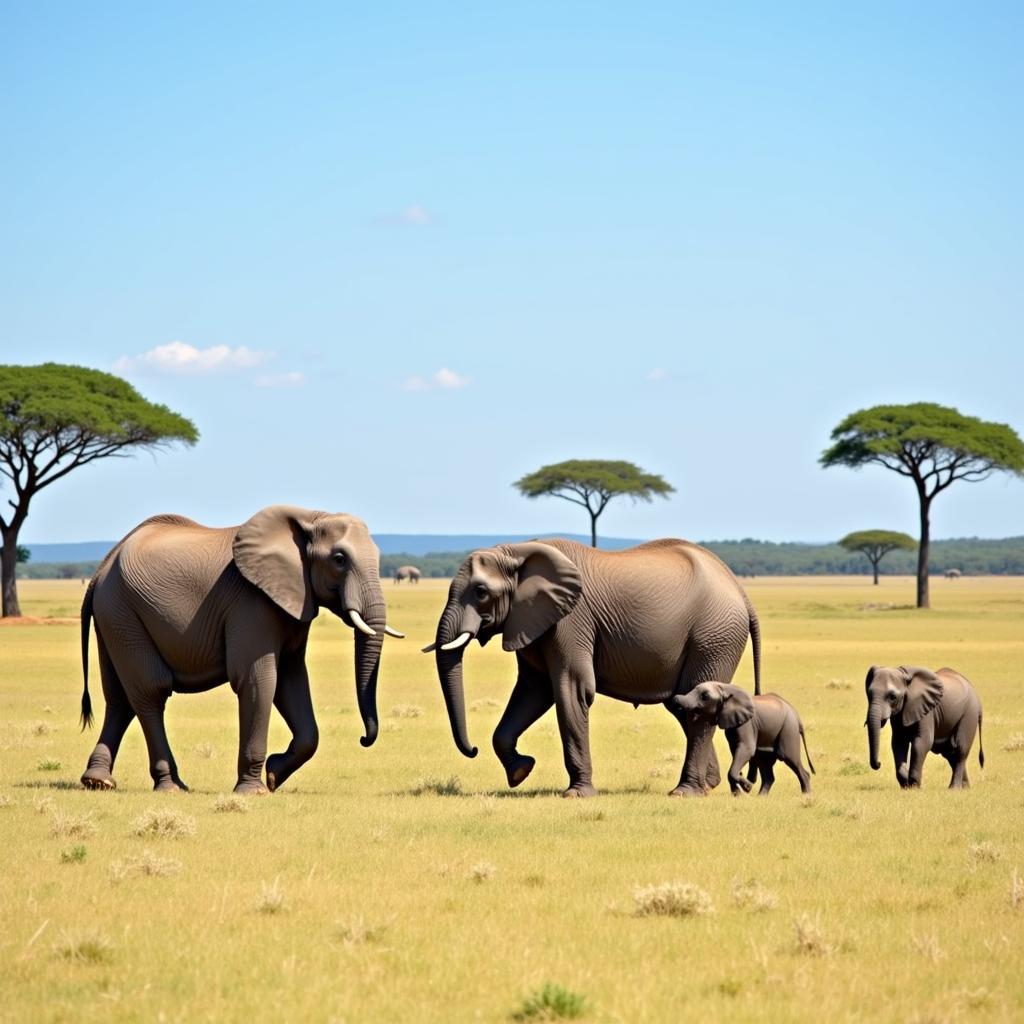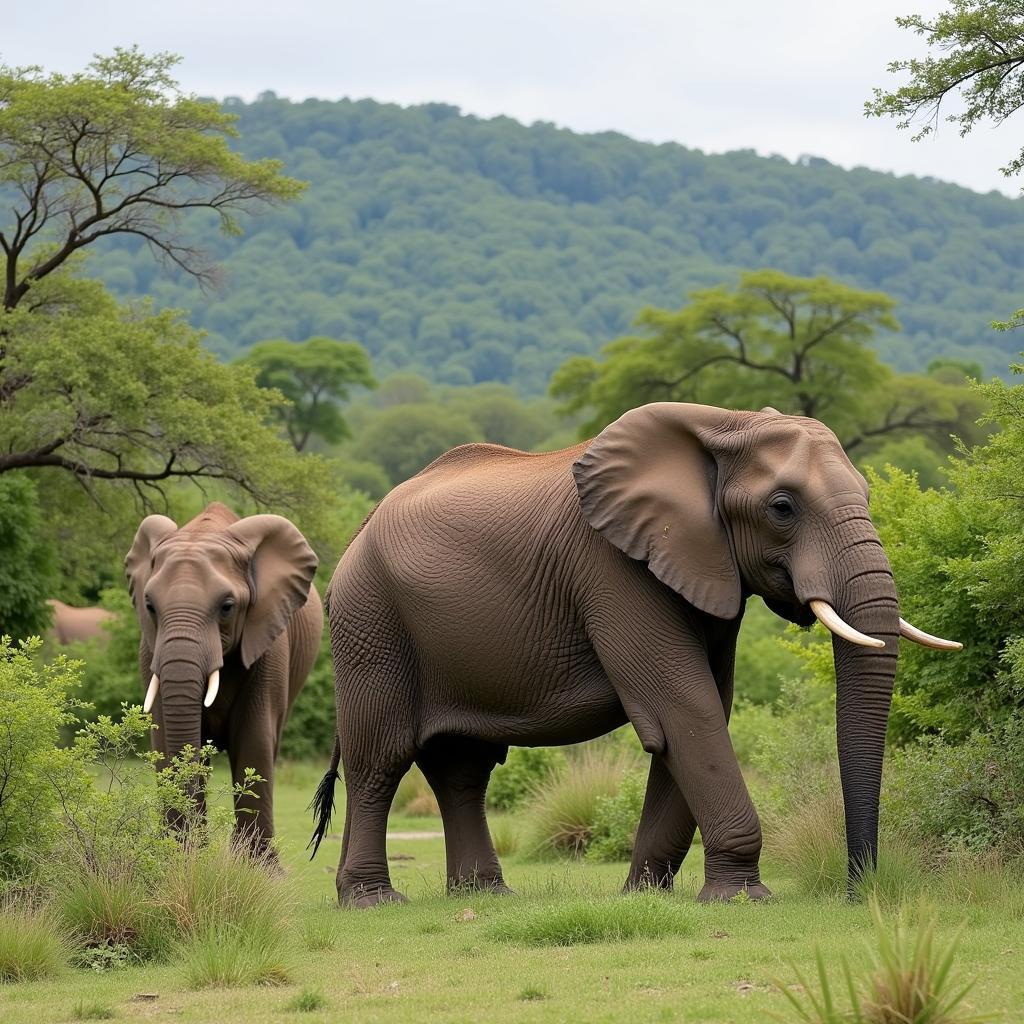African Elephant Conservation Efforts are a multifaceted and urgent response to the numerous threats facing these magnificent creatures across their natural range. The plight of African elephants has captured global attention, prompting a diverse range of initiatives aimed at securing their future.
Understanding the Crisis: Why African Elephant Conservation Matters
African elephants, both the savanna and forest subspecies, play a crucial role in maintaining the ecological balance of their habitats. As megaherbivores, their feeding habits, including consuming large quantities of vegetation and digging for water, shape the landscape and create microhabitats for other species. Furthermore, their dung disperses seeds, contributing to plant diversity. The decline of African elephants would have cascading effects on entire ecosystems, impacting biodiversity and overall ecosystem health.
 African Elephant Family in Savanna
African Elephant Family in Savanna
Beyond their ecological significance, African elephants hold profound cultural importance for many communities across Africa. They are revered as symbols of strength, wisdom, and are deeply intertwined with local traditions, folklore, and spiritual beliefs. The loss of elephants would not only be an ecological disaster but also a cultural tragedy.
The Threats: What Endangers African Elephants?
African elephants face a multitude of threats, primarily driven by human activities. These threats have led to population declines, habitat fragmentation, and significant challenges for the long-term survival of these animals.
Poaching and the Ivory Trade
Poaching for ivory remains a persistent threat to African elephants, particularly for savanna elephants with their larger tusks. Driven by demand from illegal ivory markets, primarily in Asia, poaching has decimated populations and continues to pose a significant challenge to conservation efforts.
Habitat Loss and Fragmentation
As human populations grow and expand into elephant habitats, land conversion for agriculture, settlements, and infrastructure development leads to habitat loss and fragmentation. This restricts elephant movements, isolates populations, and increases human-elephant conflict.
Climate Change
The impacts of climate change, including prolonged droughts and altered rainfall patterns, exacerbate the challenges facing African elephants. Droughts reduce water and food availability, leading to increased competition for resources and potential for human-wildlife conflict as elephants move into human settlements in search of sustenance.
Conservation Strategies: Protecting a Legacy
Addressing the multifaceted challenges facing African elephants requires a comprehensive and collaborative approach involving governments, conservation organizations, local communities, and international stakeholders.
Anti-Poaching and Law Enforcement
Strengthening anti-poaching efforts through increased patrols, intelligence gathering, and use of technology such as drones and tracking devices are crucial to deter poachers and disrupt the illegal ivory trade.
Habitat Protection and Restoration
Establishing and effectively managing protected areas are essential for safeguarding elephant habitats. This includes creating corridors to connect fragmented habitats, allowing for gene flow and elephant movement.
 African Elephant in Protected Area
African Elephant in Protected Area
Community-Based Conservation
Engaging local communities living near elephant populations is essential for successful conservation. This includes promoting sustainable livelihoods that reduce reliance on activities harmful to elephants, such as providing alternative income sources to poaching or promoting elephant-friendly farming practices.
Raising Awareness
Educating the public about the importance of African elephant conservation, the threats they face, and the role individuals can play in supporting conservation efforts is critical.
Looking Ahead: A Future for African Elephants
The future of African elephants depends on sustained and strengthened conservation efforts. By addressing the threats they face, promoting coexistence between humans and elephants, and ensuring that future generations can witness these magnificent creatures in the wild, we can secure a future where African elephants continue to roam free.
Leave a Reply